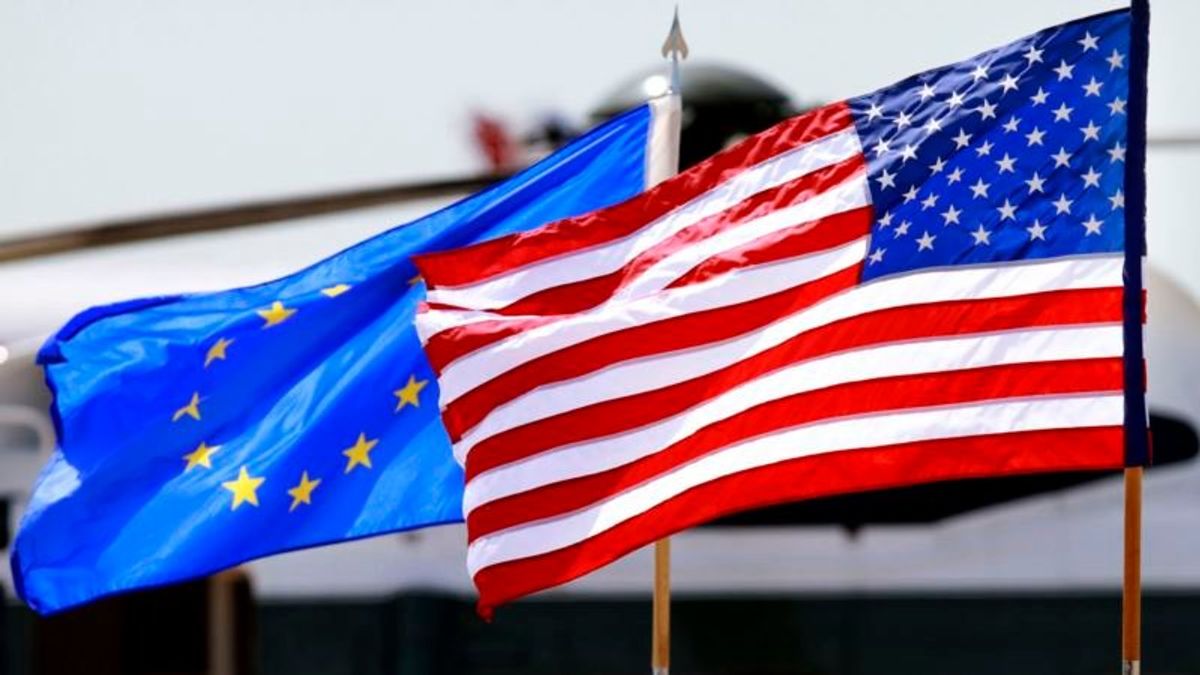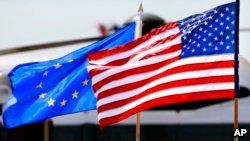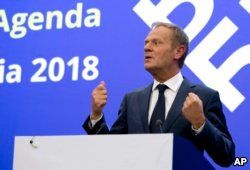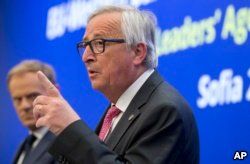
US Pushes Back on Reports of Fraying Ties With Europe
US Pushes Back on Reports of Fraying Ties With Europe

STATE DEPARTMENT —
U.S. officials are pushing back at reports that America's ties with European allies are frayed over the Trump administration's withdrawal from the Iran nuclear deal.
"We agree on more than we disagree," said State Department Policy Planning Director Brian Hook during a telephone briefing Friday with reporters. "People are overstating the disagreement between the U.S. and Europe."
"We believe that our shared values and commitment to confront the common security challenges will transcend any disagreements over the JCPOA," said Hook, referring to the 2015 Iran nuclear accord with major powers.

His remarks come after President of the European Council Donald Tusk lashed out at Washington over a trade dispute and the United States pulling out of the Iran nuclear deal.
When asked about Tusk's tweet, U.S. President Donald Trump hit back, saying the European Union has been "terrible" with the U.S. on trade.
"We lost $151 billion last year dealing with the European Union," Trump told reporters Thursday, referring to the U.S. trade deficit with the 28-nation bloc. "So they can call me all sorts of names. And if I were them, I'd call me names also, because it's not going to happen any longer."
Iran deal fallout
Intense diplomacy followed Trump's decision to pull out of the Iran deal, with Secretary of State Mike Pompeo making phone calls to his counterparts in Britain, France and Germany. U.S. officials said those conversations were focused on agreeing to a new "security architecture" for Iran.
At the same time, the European Commission is working to prohibit European companies from adhering to U.S. sanctions against Iran, a move to help keep the Iran nuclear agreement intact and to defend European corporate interests.

"We have the duty to protect European companies," Commission President Jean-Claude Juncker said following a meeting of European Union leaders Thursday in Sofia, Bulgaria. "We now need to act and this is why we are launching the process."
Juncker said the commission will begin the process of activating a so-called blocking statute, which bans EU companies from observing the sanctions and any court rulings that enforce U.S. penalties.
The way forward
On Monday, Pompeo will deliver his first major foreign policy remarks on Iran and the path forward after the U.S. withdrawal from the Iran nuclear deal.
U.S. officials say Washington seeks a diplomatic outcome with Iran that addresses "the totality of Iran's threats," including its nuclear programs and "destabilizing" activities.
"This involves a range of things around its [Iran's] nuclear program — missiles, proliferating missiles, and missile technology, its support for terrorists, and its aggressive and violent activities that fuel civil wars in Syria and Yemen," Hook said Friday.
"We see this, the coming months, as an opportunity to expand our efforts and to work with a lot of countries who share the same concerns about nonproliferation, about terrorism, about stoking civil wars around the region, and so we're very, very hopeful about the diplomacy ahead," he added.
 Trump Thrusts Abortion Fight into Crucial Midterm ElectionsNext PostFirst Somali-American Legislator Seeks Re-Election
Trump Thrusts Abortion Fight into Crucial Midterm ElectionsNext PostFirst Somali-American Legislator Seeks Re-Election







